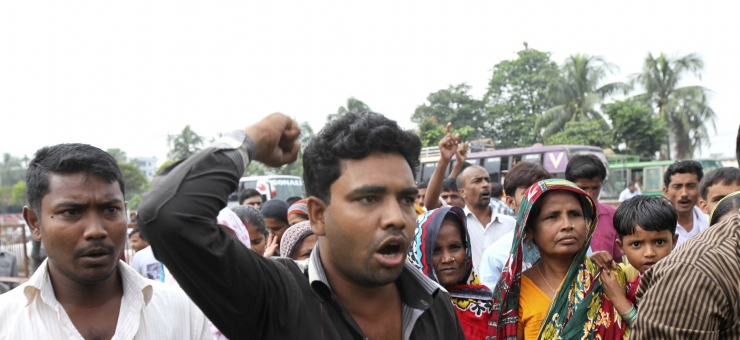MENU
Affiliates only
Login
Login

UNI Global Union says the concrete factory collapse in Bangladesh, which has claimed many lives, is a terrible reminder of the need for better building safety standards. It is a further example that the Bangladeshi authorities are still failing to achieve the safety standards required.
We speak from bitter experience of the Rana Plaza factory collapse in April 2013 which cost over 1000 lives. Our drive to improve building standards in the garment sector was promised by the authorities to drive new standards throughout the economy.
UNI Global Union General Secretary, Philip Jennings, said, “UNI and the rest of the labour movement send our heartfelt condolences to the families of the victims of this latest preventable factory tragedy in Bangladesh. The Bangladesh Accord covers over 2000 factories and is improving safety standards in the Bangladeshi garment industry but we are aware this is only the tip of the iceberg. How many more disasters do we have to experience before the authorities live up to their responsibilities? There is an endemic problem of factory safety not only in Bangladesh but in other parts of the world where profit is put before workers.
“We don’t yet have all the facts on the concrete factory tragedy but we can say that the Bangladesh Accord is setting inspection standards which should be replicated across global supply chains. Our inspections of 2000 factories found over 8000 safety issues that needed rectifying. The safety inspectors were forced to close down certain factories while urgent remedial work took place to stop a potential new Rana Plaza.
“We should question business claims that safety standards are too much ‘red tape’. It is lives not the bottom line that should have priority.”
At least six workers are dead after a building extension under construction collapsed in Mongla in Bangladesh. According to the press reports, workers had half-finished pouring concrete for the roof when the structure caved. Dozens of workers are trapped under the collapsed building.